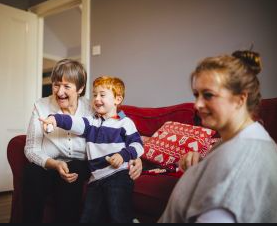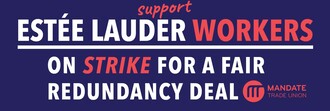- Featured
- Animal Rights
- Anti-racism
- Arts & Culture
- Children
- Climate
- Corporate accountability
- Crime
- Disability rights
- Economic
- Education
- Environment
- Food and Sustainable Production
- Gender Equality
- Governance and Transparency
- Health
- Housing
- LGBT Rights
- Mental health
- Northern Ireland
- Planning
- Privacy and Data Protection
- Rural Inequality
- Social Justice
- Trade
- Transport and Infrastructure
- Workers' Rights
- More
-
SHUT DOWN ASHTON POUND FOR THE UNETHICAL TREATMENT OF ANIMALSInnocent Stray, Lost & Abandoned Animal are suffering. These dogs did not and do not deserve the suffering they endure in this establishment. The current ownership and management have proven their inability to care for animals and showcased the harm their causing to innocent dogs everyday. Shutting down Ashton Pound is important because: Animals are suffering through the arrogance of Dublin City Council & our Government. Animals are being confined in filth, damp and cold conditions. There is concrete evidence that dogs are being put to sleep improperly using a lethal drug by untrained staff members. "A Bichon Frise suffered a suspected overdose and was found dead the next day while an Akita was left to suffer horribly for days until it was taken into the care of gardai." Dogs are not being released to reunited owners with no reasoning. Dogs have proven to have severe anxiety and trauma following their stay at Ashton Pound due to the horrifically terrifying experience they endured. Voiceless animals are suffering at the hands of humans in Ashton Pound. They cry and yelp in pain waiting for better humans to help. INNOCENT ANIMALS WILL CONTINUE TO SUFFER AND DIE WITHIN THE WALLS OF ASHTON POUND - SHUT IT DOWN!!!!19,494 of 20,000 SignaturesCreated by The Dog Helpers
-
Provide any survivor or victim of Mother & Baby Home with a physical copy of the reportThe victims need access to the report in physical form for various reason including age and access to a computer. This should have been considered long before this as the victims now have to listen to all manner of commentators discuss their experiences without having access to the report.717 of 800 SignaturesCreated by S L
-
Upgrade Windows and Doors on the Tailteann and Dunloe Estates.Having a warm home is a basic human right. Windows and doors installed during construction of the estate are not fit for purpose and it is impossible to keep our homes warm. Residents are forced to burn fossil fuels to heat our homes. It is not good for the environment. We'd like council to engage in a replacement programme and install modern windows and doors.200 of 300 SignaturesCreated by Cllr Eddie Fennessy
-
The catholic church need to apologize!!!The mother and baby homes report came out today. The highlights of this report are incredibly saddening. For a woman and child that was subjected to such cruelty under the hands of a religious order that they possibly looked up to is inhumane. The catholic church need to apologize and the catholic orders also for this horrible Irish history. The woman and children of these homes deserve that at least! Woman are not second class citizens. We have fought to be heard for many years and we continue to fight.276 of 300 SignaturesCreated by Kara Moore
-
Ramp Up the Coronavirus Vaccine in IrelandAt the moment we are set to have vaccinated 135,000 people by the end of February 2021. This is simply not enough. If we want to beat this disease and get back to somewhat normality we need to rapidly increase the amount of the vaccine being administrated and to change the way that we are doing so. We need around the clock 24hr administration of the vaccine. We need to train up and utilise all of the volunteers that we can to roll-out this vaccine to everyone possible. We need to have an online system of registration including a list for cancellations to ensure that every single dose is used. We need to aggressively tackle this disease and get a better plan than the one that we have. Take a look at Israel, they have vaccinated 1.37million of their people. We need to make sure that we give everyone the opportunity to receive the vaccine should they want to in the quickest possible time. We also need to look at the priority group system and roll-out quicker to our most needed services20 of 100 SignaturesCreated by . .
-
TCD: Hold a Climate Assembly and ReferendumThe Mobilise Peace campaign is reaching out to universities across Ireland, the UK and globally in a peaceful and escalating campaign calling for them to support, encourage and prepare their student, alumni and staff populations for national peaceful civil disobedience. Our global climate and ecological systems are in a state of severe crisis. Our economic system, which demands infinite growth on a planet of finite resources, is largely to blame for the above crises. Furthermore it inflicts untold suffering on defenceless others here, and around the world in numerous other ways. [1] There are many peaceful, positive practical, and powerful alternatives to our current system. These alternatives should be decided by a citizens' assembly. Governments worldwide have proven themselves to be either unwilling or dilatory to implement the changes needed. New climate models to be published in 2021 predict heating of +5C by the end of the century, translating to as much as +10C over land. [2] For perspective, 2-3 degrees of warming will result in 2 billion climate refugees by 2100. [3, 4] Through 2050 net zero targets, inordinately high per capita emissions, and raised border policies, our national and EU governments are taking a trajectory consistent with climate genocide of the Global South. There is a great injustice occurring and there is strong reason to believe that policies, laws and lawful recourse to changing them will not work. Peaceful civil disobedience may thus present the best option and possibly last hope we have of bringing about positive societal change. [5, 6] The fastest way to rapidly change a society is through non-violent civil disobedience. This has been demonstrated time and time again throughout history — the Suffragettes, the Civil Rights Movement, resistance to apartheid in South Africa and the fight for India's independence from British rule. [6] References: 1. Sachs et al., 2020, Letter from economists: to rebuild our world, we must end the carbon economy The Guardian 2. Voosen, P., 2019. New climate models predict a warming surge. Science, pp.Science, 04/17/2019. 3. Vince, G. 2019 The heat is on over the climate crisis. Only radical measures will work. The Guardian 4. Xu et al., 2020, Future of the human climate niche, PNAS, 117, 11350 5. Lemons, J. & Brown, D., 2011. Global climate change and non-violent civil disobedience. Ethics in Science and Environmental Politics, 111, pp.312. 6. Chenoweth, E., &; Stephan, M. 2011. Why Civil Resistance Works: The Strategic Logic of Nonviolent Conflict Columbia University Press. fb.me/mobilisepeace fb.me/scientistrebellion fb.me/systemchangeinternational148 of 200 SignaturesCreated by Zac Lumley

-
Declare President Donald J. Trump persona non grata in IrelandDuring the last 4 years we have seen Donald J. Trump erode American democracy, incite hatred and violence, target ethnic minorities and flout laws both in the United States and internationally. Each day he has proven he can sink deeper into criminality, bullying, racist rhetoric and displayed his utter contempt for democratic norms and institutions culminating in calling on his supporters to march on the Capitol building to stop the certification of the 2020 US Presidential election. The events of the last 24 hours (since 6th January 2021) have shown, conclusively, that Donald Trump is a despot and a danger and Ireland should censure, condemn and penalise his behaviour in the strongest possible terms as well as preventing him from setting foot on Irish soil for the rest of his natural life. We the people of Ireland ask our elected representatives and leaders to take action and declare Donald J. Trump persona non grata with immediate effect.24 of 100 SignaturesCreated by Eoghain Cooper
-
Make Free At-Home STI Testing Pilot PermanentThe HSE and SH:24 partnered to offer free STI home test kits as part of a pilot project, to find out how online services can help support people’s sexual health. These at-home STI tests were LGBT+ inclusive and were first made available to order online for residents of County Dublin, Cork and Kerry, however, as of January 6th - less than one day after the pilot launched, the service was shut due to the unprecedented high demand. The high number of sign-ups clearly illustrates the strong support for continuing and expanding this service nationwide. This scheme is particularly necessary at present as STI clinics are closed due to COVID-19, risking long waiting lists upon re-opening, and worsened health outcomes for those who could not access testing and treatment. At-home STI tests shift those with less complex sexual health needs from clinics to an online service thus reducing clinic waiting times, is safer during COVID-19, removes transportation barriers and encourages more people to get tested due to easier access. Free STI tests removes the financial barriers to testing services. Sign the petition to show your support for continuing & expanding this scheme!1,522 of 2,000 SignaturesCreated by Róisín Hackett
-
Stop Peat Removal at Lough NeaghMcCann Bros are consulting on their proposals to carry out peat extraction on the shores of Lough Neagh. This should be stopped because: - This beautiful bogland is a finite resource, vital for wildlife and as a carbon sink. Contrary to the consultation the extraction will not be 'temporary' and to say so is a gross misrepresentation of the application. You cannot temporarily dig out a bog – when its gone its gone. - The proposal flies in the face of the Strategic Planning Policy Statement which protects peatlands. - This peatland is within an Area of Constraint on Minerals and within the Lough Neagh Ramsar site which means it is a wetland of international importance – this rich nature reserve should not and cannot be mined for horticultural peat that no gardener needs. - A two week consultation that finishes on New Years Eve at a time of Christmas and Covid is a cynical abuse of the planning system.1,211 of 2,000 SignaturesCreated by Nicola Browne
-
Protect families and close the social security loopholesHundreds are unprotected from bedroom tax and over a thousand unprotected from the benefit cap due to loopholes in the current welfare mitigations. The 9 month benefit cap grace period will come to an end at Christmas, impacting 46,000 people who began claiming Universal Credit in March at the start of the pandemic. All those affected are families with children and 77% are lone parents, losing around £200 a month. The loophole can be closed but the Minister for Communities must act now.5 of 100 SignaturesCreated by Nicola Browne
-
Respect your workers and implement the Labour Court RecommendationAfter working for Estee Lauder in Dublin Airport for 8 years, my company decided to tear up my contract of employment and made me redundant, along with dozens of others. They also imposed pay cuts of up to €5,000 per year on staff that weren’t let go. We’ve been on strike now for 9 days and the Labour Court has ruled in our favour, but Estee Lauder management are refusing to abide by it. We have lost our jobs, lost thousands of euros in income, and yet our company is one of the largest multinationals in the world paying out massive dividends to its owners. All we are asking for is a bit of fairness and respect for the loyalty and efforts we’ve given over decades. The Labour Court said we should receive four weeks pay per year of service for our redundancy, and any loss of earnings should be compensated at 1.5 times the annual loss (for example, if you lost €3,000 per year you should receive €4,500 in compensation). This is going to be a very tough time for all of us, but particularly for workers who have lost their jobs and had pay cuts. It would help so many of us to pay our bills our rent and our mortgages if companies like Estee Lauder looked after their workers. Please Estee Lauder, do the right thing by your workers. Implement the Labour Court recommendation. Thank you for your support. Jackie Gibbons.120 of 200 SignaturesCreated by Jackie Gibbons
-
Ban 'Do They Know It's Christmas' From Irish Radio/MediaThis is a classic example of 'White Saviourism' portraying a negative stereotype of what Africa is like, what people in Africa in like. It's racist and discriminatory and Irish people and media/radio should be aware of how problematic it can be.5 of 100 SignaturesCreated by Shane Moore












